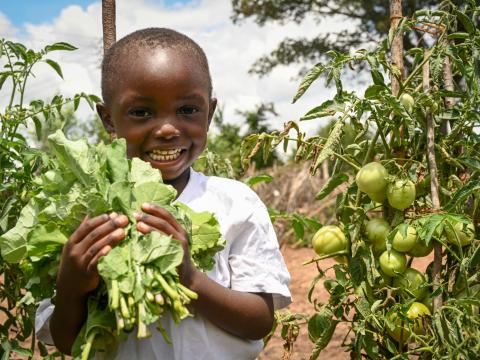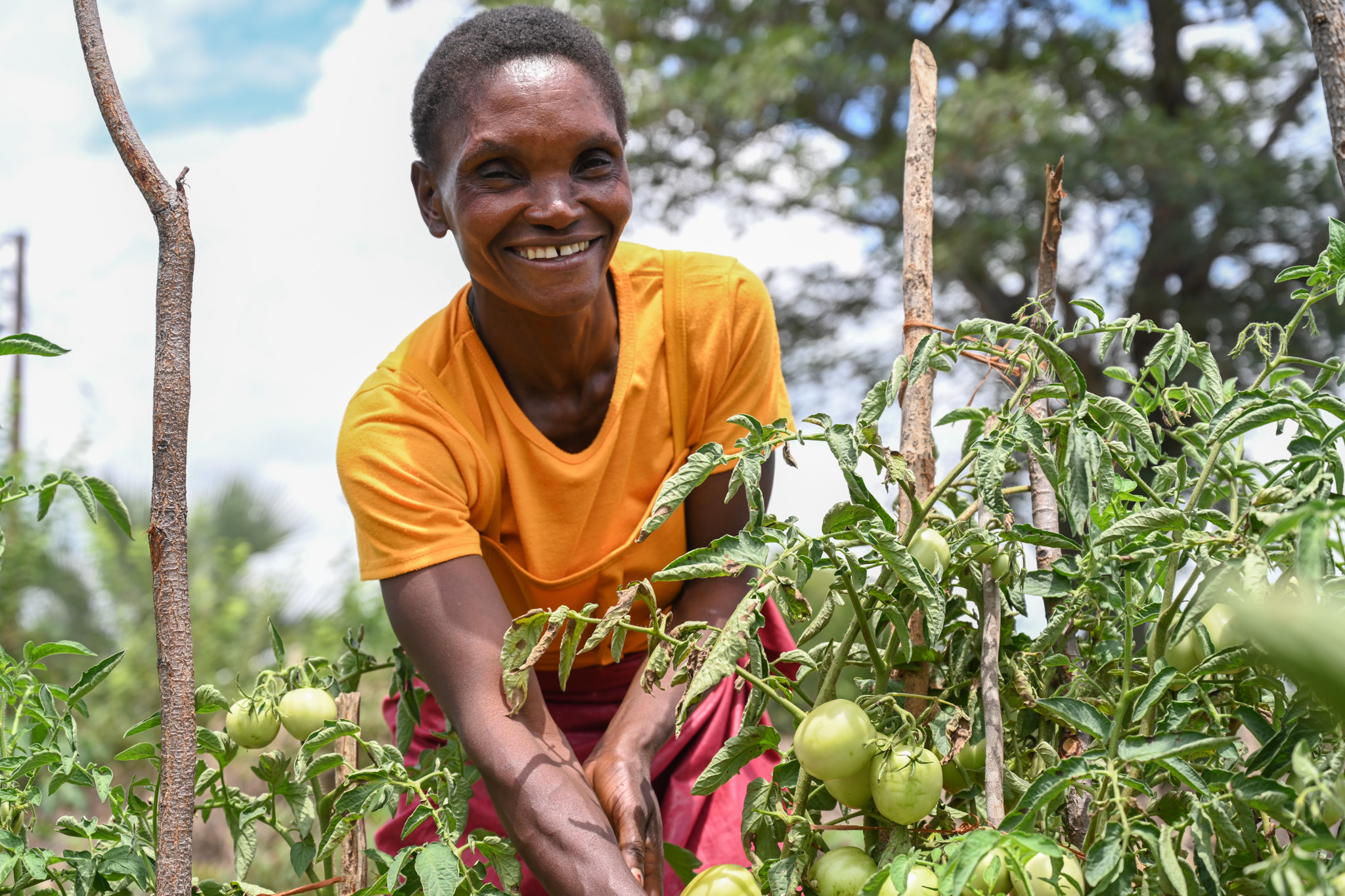From Despair to Hope: A Mother's Journey to Nourish Her Child

By Agatha Mali, Communications, Zambia
Phiness, 41, recalls the overwhelming worry she felt watching her young son Keegan's health steadily worsen. Despite her efforts to feed him regularly, he appeared weak, underweight, and often fell sick.
"I wondered why my child's health and weight were not improving despite me giving him food," she recalls. "Little did I know I was giving him the wrong foods, which made him undernourished."
In her community, limited resources and a lack of access to nutrition education meant that many parents faced similar challenges. Like many others, Phiness didn't realize the critical role of balanced nutrients in child development. For years, her family subsisted on simple, affordable staples, not knowing these foods alone lacked the essential vitamins, minerals, and proteins her son needed to thrive. Watching her child's health decline, Phiness felt frustrated and helpless as her efforts seemed to make little difference.

All this changed in 2018 when Phiness joined a local nutrition support group trained by a World Vision project. World Vision's intervention, led by trained community health workers, focused on equipping parents with practical knowledge on child nutrition, covering everything from food groups to meal preparation and sustainable home gardening practices. Through the program, Phiness received ongoing support and learned how to cultivate a variety of nutritious vegetables at home.
Week after week, Phiness attended hands-on training sessions where she learned about balanced diets and how to prepare meals that would provide the essential nutrients her son needed. She was introduced to locally available, nutrient-dense ingredients she hadn't previously used, like dark green leafy vegetables and groundnuts, which are rich in iron and protein. The nutrition group also taught her affordable ways to combine these foods with traditional staples, making meals both nutritious and familiar.
"At first, I thought I wouldn't be able to afford all the foods I was shown, but I figured it would be cheaper if I started growing my own vegetables," says Phiness.
Excited and motivated, Phiness began applying her newfound knowledge. She started a small vegetable garden behind her home, growing nutrient-dense crops like spinach, carrots, and beans, which she now includes in her son's meals. She learned to prepare these foods in ways that retain their nutrients, avoiding common cooking practices that may diminish their value.
The impact was transformative. Over the following months, Phiness saw her son gain weight, become more active, and fall sick less often.
"Now I see my child growing stronger and healthier," she says, smiling with pride. "I feel empowered, knowing that I can provide for him in the right way." For Phiness, each small meal she prepares now represents a promise of a brighter, healthier future for her son.
World Vision's intervention has changed everything not only for Phiness's son but for her entire family.
"I no longer feel helpless," she says. "World Vision has shown me a way to take charge of my children's health, even with the few resources we have."
Her hope now is that every mother in her community can experience the joy of watching their children grow strong, healthy, and full of life.